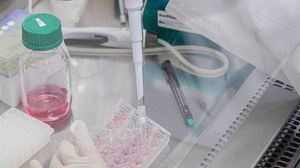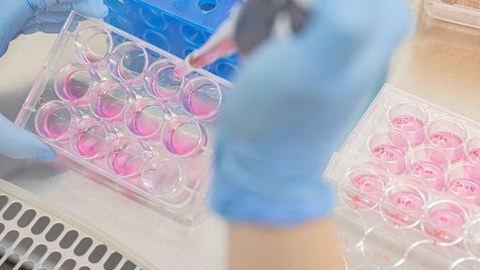Scientific Scope
Sequencing of whole genomes has provided new perspectives into the blueprints of diverse organisms. Knowing the sequences, however, does not always tell us much about the function of the genes that regulate development and homeostasis. Our laboratory is using different strategies to dissect gene function relevant to human disease, such as cancer biology and stem cell research.
 © Amac Garbe
© Amac Garbe
Research at the Chair
Massive parallel sequencing has provided the means to rapidly identify all mutations that are present in a tumor. Nevertheless, it is mostly not known which of these mutations are actually driving the disease. The discovery of RNA interference has enabled the full development of functional genomics to allow genome-wide loss-of-function analyses in a wide spectrum of organism. Hence, it is now feasible to probe the function of each gene in cells by genome-wide RNAi screens.
In addition CRISPR/Cas9 is one of the most revolutionary tools in biotechnology. Our laboratory has developed this technology to specifically cleave DNA at sites that are mutated in cancer cells. We are currently further developing this technology for use in primary patient material as a diagnostic tool to pinpoint patient specific vulnerability mutations.
A second focus of the laboratory is the use of directed molecular evolution to evolve site-specific recombinase for precision genome editing. By applying substrate-linked directed evolution, in combination with rational design, site-specific recombinases are generated with therapeutic potential.





